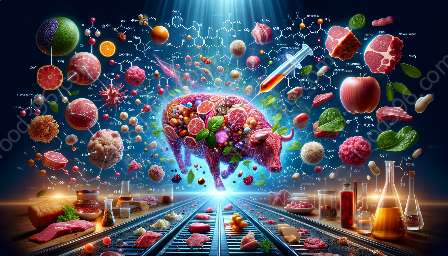Meat is a significant source of essential nutrients, including proteins, fats, vitamins, and minerals. However, one crucial component often overlooked in meat research is carbohydrates. In this comprehensive study, we delve into the complex interplay of carbohydrates in meat and its impact on meat chemistry and science.
Understanding Carbohydrates in Meat
Carbohydrates are a group of organic compounds that include sugars, starches, and cellulose. In meat, carbohydrates are primarily present in the form of glycogen, the storage form of glucose. During the slaughtering process, glycogen in the muscle tissues is broken down into lactic acid, which influences meat pH and postmortem processes.
Impact on Meat Chemistry
The presence of carbohydrates, particularly glycogen, significantly influences meat chemistry. The breakdown of glycogen post-slaughter affects the pH of meat, which, in turn, influences water-holding capacity and meat tenderness. Additionally, carbohydrates contribute to the Maillard reaction during cooking, leading to the development of flavor, aroma, and color compounds in meat.
Carbohydrates in Meat Science
From a meat science perspective, understanding the role of carbohydrates in meat is essential for ensuring meat quality, safety, and consumer acceptance. Carbohydrates contribute to the sensory attributes of meat, including texture, juiciness, and palatability. Moreover, the presence of carbohydrates in processed meats can influence technological functions such as binding and emulsification.
The Significance of Carbohydrates in Meat Research
Research on carbohydrates in meat is crucial for advancing our understanding of meat composition and quality. It provides insights into postmortem processes, such as rigor mortis and aging, that significantly impact meat texture and flavor. Furthermore, elucidating the interactions between carbohydrates, proteins, and lipids in meat can pave the way for the development of innovative meat products with enhanced nutritional profiles and sensory attributes.
Conclusion
In conclusion, carbohydrates play a multifaceted role in the realm of meat chemistry and science. Their impact on meat quality, chemistry, and sensory attributes underscores the need for comprehensive research and exploration. By uncovering the intricate interplay of carbohydrates in meat, we can unlock new avenues for optimizing meat products and enhancing consumer experiences.

